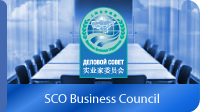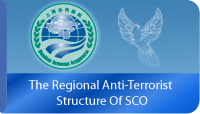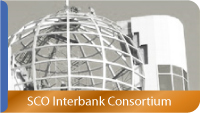|
|
 |
| Grieves and joys of Russian-Chinese partnership |
| 19.10.2011 13:22 |
|
|
|
|
Dmitry Kosyrev, political commentator
Three key topics were seriously debated inside Russia during Prime Minister Vladimir Putin’s recent visit to China.
This is, first of all, the economic sense of Russia’s cooperation with China and its pattern: Russia is a mere supplier of raw materials to china; can it be changed? Second, can Moscow pull off even the role of a raw materials supplier, given the serious disputes between the two neighbors concerning their two biggest long-term contracts, for oil and gas supply? And, finally, we should not forget the heated debates in Russian mass media about the political meaning of Russian-Chinese relations: is it an alternative to contacts with the US and the EU, a tool of diplomatic pressure on America and Europe or something else? The latter issue was closely connected to the obvious symbolism of Putin’s visit: it was not just the head of government (i.e. the person responsible for the economy) that came to China. After September 24, when Putin announced his intention to run for president next March, China (and not only China) views him as the man that has been building the strategy of relations with the country for eight years and may continue doing so for at least another six.
From raw materials to technology
The program of the visit, which has been planned long before October, was worked on for at least several weeks, so the trip was still centered on the economy, devoted to the development of Russian-Chinese trade and investment.
In the 1990s, when the two countries had to start from the scratch after the Russian-Chinese reconciliation in 1989 (the meeting between Mikhail Gorbachev and Deng Xiaoping), any economic project was of strategic importance. Weapons supply – a contract for construction of nuclear power plants – supply of oil, gas and timber – construction of hydropower plants in China: this is how the scheme looked from Russia. It had political implications as well: Moscow wanted to achieve a mutual understanding with Beijing that would allow it to pursue an independent policy in the world, to be less dependent on the pressure from the United States and the European Union. It succeeded with the latter. Moreover, after Boris Yeltsin (in whom China didn’t have much trust) resigned, the two countries managed to build if not a union, then at least a conscious strategic partnership. Its scheme was very simple: China’s strengthening in the world is extremely beneficial for Russia, and vice versa.
In the economy, however, odd things happened. Russia sincerely hoped to develop its high-tech industries with China, India and other Asian countries as target markets, understanding that its prospects in Europe and the US were quite obscure. Yet if the structure of trade with India eventually became what Russia wanted it to be (with high-tech products prevailing), in case of China, everything moved towards a “colonial” scheme: Russia’s technological exports dropped to 5% and then to just above 1%, while China, on the contrary, became Russia’s biggest supplier of cars, computers and other devices and household appliances… Yes, the biggest one. Last year, China once again became Russia’s No.1 trade partner, outrunning Germany, which had competed for the title several times. The projected bilateral trade turnover for this year, which was voiced during Putin’s visit -- $70 billion – will allow China to keep the first place.
In the last two or three years, the main problem between Russia and China was this “colonial” nature of their trade that wouldn’t resolve. So I would say that the main outcome of Putin’s visit to China is the demonstrative turn of the two governments towards cooperation in modernization and the technology sector. Aircraft-building, nanotechnology, biotechnology, computerization, medicine – these are the areas the prime minister named after his two-day stay in the Chinese capital. This is a new (and long-awaited) trend that is of both economic and political importance for bilateral relations.
It has a political meaning because it is vitally important for Moscow, but not for Beijing. That is, China has made a concession: after all, it requires Chinese investment (i.e. a certain risk) in above mentioned industries. Of course, this breakthrough has been prepared long in advance. Moreover, the issues Putin discussed during his visit include some projects that were first mentioned back in the 1990s and that are gradually moving towards implementation, with new ones added along the way…
Projects that were conceived in the 1990s and have proved crucial include pipeline oil and gas supply from Russia to China.
Price formula
This time, China once again showed how difficult it is go reach an agreement with it on prices and terms of even those contracts that seem to be vital for Beijing.
Even before Putin’s departure for China, it was known that the talks on long-term Russian gas supply to China were not expected to be completed during the visit. So the prime minister’s statement that the two countries “were nearing the end” of gas negotiations came as a nice surprise. The same is true bout the agreement on oil supply reached in Beijing: earlier, the Chinese party had wanted to “adjust” the price of oil after supply from Skovorodino southwards had already begun and paid less than it was supposed to, which even forced Transneft to threaten cancelling all the agreements and turning to the London arbitration court.
The Russian-Chinese dispute about the price of gas, which is to be supplied to China over the course of three decades, is not even about “meeting each other half way.” It was possible to meet each other half way when drawing the border on the Amur river, all the more so, as this river was, perhaps, the world’s only anomaly where one party – the Soviet Union and then Russia – owned one bank and the entire water zone. After all, rivers are usually divided along the midstream. So the outcome of the talks, which six years ago finally settled all territorial issues between the two big countries, had been known in advance (even though they had started in 1964 and progressed with difficulty). It is not so easy with gas.
Reports about the price dispute mentioned the bracket of $400 and $250 per 1,000 cubic meters of gas. The half way is somewhere around $275. And no matter how good the Chinese (and Russia’s other key partner in this sphere, India) are at haggling till the end, it would seem that finding the middle should not be that difficult. However, the question is about supply of 68 billion cubic meters of gas annually for 30 years. The amount involved is a trillion of dollars: the global energy sector has not seen such contracts yet. No wonder that the talks have been going on for almost five years and will continue for some more time to come. Moreover, it is still unclear which of the two routes will be chosen, the western one, from the Altai, or the eastern one, from Yakutia.
How can even the formula of price be determined for the next 30 years? Today, China may combine the price of Turkmen gas it buys with the price Moscow sets for Europe, and all of it together with the price of liquefied natural gas and Europe’s intention to get rid of dependence on Russian gas. But how can the price formula be expressed at the time of a financial crisis, when no one knows what the US dollar and the euro will cost in a year? Perhaps, it can be calculated in bags of rice? Or, perhaps, the reason is that long-term contracts are a risky affair today and Moscow’s (and Beijing’s) partiality to this type of deals is wrong?
Purpose of strategic partnership
However, it’s a bad statesman who cannot build strategic relations with the world’s greatest powers. All the more so, if we are talking about Russia and China, which describe their mutual relations as “strategic partnership.”
On the one hand, it is obvious from their behavior on the international stage. It has long been noted that the two countries’ leaders have similar views on a majority of issues, even without discussing them in advance. This is easy to explain: both countries are interested in what Chinese experts called a multi-polar world back in the 1980s (their Russian colleagues borrowed the phrase in the 1990s). A multi-polar world means that there is no political, economic or moral dictate from any state, it means international democracy and plurality of views, cultures and political systems. However, Moscow and Beijing have already achieved this common goal. The United States’ monopoly as the biggest power has been disrupted and, apparently, for good. China’s GDP (15% of the global) is almost 1.5 times below the American GDP, but the Chinese economy is 150% bigger than the Japanese or Indian and over 200% bigger than the German one. China may outflank the US already in five years, and not by the middle of the century as was predicted earlier. However, it won’t totally break away from other leaders, due to the limits of its population’s growth and other reasons. So the situation is ideal for everyone.
But that is in terms of strategic balance. In terms of bilateral relations, however, this creates problems for Russia: what for Moscow is an unprecedented turnover with China, for the latter is the level of Malaysia. The reason is that the Chinese economy is four times bigger than the Russian one, and dependence between the two countries is asymmetrical. Which creates certain problems.
Energy supply is crucial for China; some time ago it seemed to be the only thing that interested it in Russia. But China has already grown used to something always happening in supplier countries, so making pipelines its strategic tie to Russia is not a 100% guarantee of success.
Finally, a few words about domestic politics. In the 1990s, the liberal wing of Russian society tried to promote the idea of the need to cooperate with the EU and the United States for political rather than economic reasons. It was either one thing or the other, either you are friends with the East or with the West. Cooperation with democracies against China and Asia in general for the sake of liberalization of Russian society – that was the essence of the liberals’ foreign political doctrine. It could be heard even now, during the debates around Putin’s visit to China.
Of course, the artificial nature of this doctrine helped to oust liberals to the curb of Russian politics, and they don’t seem able to come back. At least, here we are dealing with a simple, very simple idea. The real formula of strategic relations with China is much more complicated, it shapes in the process and keeps changing. These relations constantly encounter difficulties, discrepancies between political expectations and economic reality, but at least, they are moving forward.
|
|
* Реестр иностранных средств массовой информации, выполняющих функции иностранного агента:
Голос Америки, Idel.Реалии, Кавказ.Реалии, Крым.Реалии, Телеканал Настоящее Время, Azatliq Radiosi, PCE/PC, Сибирь.Реалии, Фактограф, Север.Реалии, Радио Свобода, MEDIUM-ORIENT, Пономарев Лев Александрович, Савицкая Людмила Алексеевна, Маркелов Сергей Евгеньевич, Камалягин Денис Николаевич, Апахончич Дарья Александровна, Medusa Project, Первое антикоррупционное СМИ, VTimes.io, Баданин Роман Сергеевич, Гликин Максим Александрович, Маняхин Петр Борисович, Ярош Юлия Петровна, Чуракова Ольга Владимировна, Железнова Мария Михайловна, Лукьянова Юлия Сергеевна, Маетная Елизавета Витальевна, The Insider SIA, Рубин Михаил Аркадьевич, Гройсман Софья Романовна, Рождественский Илья Дмитриевич, Апухтина Юлия Владимировна, Постернак Алексей Евгеньевич, Общество с ограниченной ответственностью Телеканал Дождь, Петров Степан Юрьевич, Istories fonds, Шмагун Олеся Валентиновна, Мароховская Алеся Алексеевна, Долинина Ирина Николаевна, Шлейнов Роман Юрьевич, Анин Роман Александрович, Великовский Дмитрий Александрович, Альтаир 2021, Ромашки монолит, Главный редактор 2021, Вега 2021
* Сведения реестра НКО, выполняющих функции иностранного агента:
Фонд защиты прав граждан Штаб, Институт права и публичной политики, Лаборатория социальных наук, Фонд по борьбе с коррупцией, Альянс врачей, НАСИЛИЮ.НЕТ, Мы против СПИДа, Фонд защиты прав граждан, СВЕЧА, Гуманитарное действие, Открытый Петербург, Феникс ПЛЮС, Лига Избирателей, Правовая инициатива, Гражданская инициатива против экологической преступности, Фонд борьбы с коррупцией, Гражданский Союз, Российский Красный Крест, Центр Хасдей Ерушалаим, Центр поддержки и содействия развитию средств массовой информации, Горячая Линия, В защиту прав заключенных, Институт глобализации и социальных движений, Центр социально-информационных инициатив Действие, ВМЕСТЕ, Благотворительный фонд охраны здоровья и защиты прав граждан, Благотворительный фонд помощи осужденным и их семьям, Фонд Тольятти, Новое время, Серебряная тайга, Так-Так-Так, центр Сова, центр Анна, Проект Апрель, Самарская губерния, Эра здоровья, правозащитное общество Мемориал, Аналитический Центр Юрия Левады, Издательство Парк Гагарина, Фонд имени Андрея Рылькова, Сфера, Центр защиты СИБАЛЬТ, Уральская правозащитная группа, Женщины Евразии, Рязанский Мемориал, Екатеринбургское общество МЕМОРИАЛ, Институт прав человека, Фонд защиты гласности, Российский исследовательский центр по правам человека, Дальневосточный центр развития гражданских инициатив и социального партнерства, Пермский региональный правозащитный центр, Гражданское действие, Центр независимых социологических исследований, Сутяжник, АКАДЕМИЯ ПО ПРАВАМ ЧЕЛОВЕКА, Частное учреждение Совета Министров северных стран, Центр развития некоммерческих организаций, Гражданское содействие, Центр Трансперенси Интернешнл-Р, Центр Защиты Прав Средств Массовой Информации, Институт развития прессы - Сибирь, Фонд поддержки свободы прессы, Гражданский контроль, Человек и Закон, Общественная комиссия по сохранению наследия академика Сахарова, Информационное агентство МЕМО. РУ, Институт региональной прессы, Институт Развития Свободы Информации, Экозащита!-Женсовет, Общественный вердикт, Евразийская антимонопольная ассоциация, Чанышева Лилия Айратовна, Сидорович Ольга Борисовна, Таранова Юлия Николаевна, Туровский Александр Алексеевич, Васильева Анастасия Евгеньевна, Ривина Анна Валерьевна, Бурдина Юлия Владимировна, Бойко Анатолий Николаевич, Гусева Ольга Андреевна, Дугин Сергей Георгиевич, Пивоваров Андрей Сергеевич, Писемский Евгений Александрович, Аверин Виталий Евгеньевич, Барахоев Магомед Бекханович, Шевченко Дмитрий Александрович, Жданов Иван Юрьевич, Рубанов Роман Викторович, Шарипков Олег Викторович, Мальсагов Муса Асланович, Мошель Ирина Ароновна, Шведов Григорий Сергеевич, Пономарев Лев Александрович, Каргалицкий Борис Юльевич, Созаев Валерий Валерьевич, Исакова Ирина Александровна, Исламов Тимур Рифгатович, Романова Ольга Евгеньевна, Щаров Сергей Алексадрович, Цирульников Борис Альбертович, Халидова Марина Владимировна, Людевиг Марина Зариевна, Федотова Галина Анатольевна, Паутов Юрий Анатольевич, Верховский Александр Маркович, Пислакова-Паркер Марина Петровна, Кочеткова Татьяна Владимировна, Чуркина Наталья Валерьевна, Акимова Татьяна Николаевна, Золотарева Екатерина Александровна, Рачинский Ян Збигневич, Жемкова Елена Борисовна, Гудков Лев Дмитриевич, Илларионова Юлия Юрьевна, Саранг Анна Васильевна, Захарова Светлана Сергеевна, Аверин Владимир Анатольевич, Щур Татьяна Михайловна, Щур Николай Алексеевич, Блинушов Андрей Юрьевич, Мосин Алексей Геннадьевич, Гефтер Валентин Михайлович, Симонов Алексей Кириллович, Флиге Ирина Анатольевна, Мельникова Валентина Дмитриевна, Вититинова Елена Владимировна, Баженова Светлана Куприяновна, Исаев Сергей Владимирович, Максимов Сергей Владимирович, Беляев Сергей Иванович, Голубева Елена Николаевна, Ганнушкина Светлана Алексеевна, Закс Елена Владимировна, Буртина Елена Юрьевна, Гендель Людмила Залмановна, Кокорина Екатерина Алексеевна, Шуманов Илья Вячеславович, Арапова Галина Юрьевна, Пастухова Анна Яковлевна, Прохоров Вадим Юрьевич, Шахова Елена Владимировна, Подузов Сергей Васильевич, Протасова Ирина Вячеславовна, Литинский Леонид Борисович, Лукашевский Сергей Маркович, Бахмин Вячеслав Иванович, Шабад Анатолий Ефимович, Сухих Дарья Николаевна, Орлов Олег Петрович, Добровольская Анна Дмитриевна, Королева Александра Евгеньевна, Смирнов Владимир Александрович, Вицин Сергей Ефимович, Золотухин Борис Андреевич, Левинсон Лев Семенович, Локшина Татьяна Иосифовна, Орлов Олег Петрович, Полякова Мара Федоровна, Резник Генри Маркович, Захаров Герман Константинович
* Единый федеральный список организаций, в том числе иностранных и международных организаций, признанных в соответствии с законодательством Российской Федерации террористическими:
Высший военный Маджлисуль Шура, Конгресс народов Ичкерии и Дагестана, Аль-Каида, Асбат аль-Ансар, Священная война, Исламская группа, Братья-мусульмане, Партия исламского освобождения, Лашкар-И-Тайба, Исламская группа, Движение Талибан, Исламская партия Туркестана, Общество социальных реформ, Общество возрождения исламского наследия, Дом двух святых, Джунд аш-Шам, Исламский джихад, Аль-Каида, Имарат Кавказ, АБТО, Правый сектор, Исламское государство, Джабха аль-Нусра ли-Ахль аш-Шам, Народное ополчение имени К. Минина и Д. Пожарского, Аджр от Аллаха Субхану уа Тагьаля SHAM, АУМ Синрике, Муджахеды джамаата Ат-Тавхида Валь-Джихад, Чистопольский Джамаат, Рохнамо ба суи давлати исломи, Террористическое сообщество Сеть, Катиба Таухид валь-Джихад, Хайят Тахрир аш-Шам, Ахлю Сунна Валь Джамаа
* Перечень общественных объединений и религиозных организаций в отношении которых судом принято вступившее в законную силу решение о ликвидации или запрете деятельности:
Национал-большевистская партия, ВЕК РА, Рада земли Кубанской Духовно Родовой Державы Русь, Асгардская Славянская Община Асгардской Веси Беловодья, Славянская Община Капища Веды Перуна, Мужская Духовная Семинария Староверов-Инглингов, Нурджулар, К Богодержавию, Таблиги Джамаат, Русское национальное единство, Национал-социалистическое общество, Джамаат мувахидов, Объединенный Вилайат Кабарды, Балкарии и Карачая, Союз славян, Ат-Такфир Валь-Хиджра, Пит Буль, Национал-социалистическая рабочая партия России, Славянский союз, Формат-18, Благородный Орден Дьявола, Армия воли народа, Национальная Социалистическая Инициатива города Череповца, Духовно-Родовая Держава Русь, Русское национальное единство, Древнерусской Инглистической церкви Православных Староверов-Инглингов, Русский общенациональный союз, Движение против нелегальной иммиграции, Кровь и Честь, О свободе совести и о религиозных объединениях, Омская организация Русское национальное единство, Северное Братство, Клуб Болельщиков Футбольного Клуба Динамо, Файзрахманисты, Мусульманская религиозная организация п. Боровский, Община Коренного Русского народа Щелковского района, Правый сектор, Украинская национальная ассамблея, Украинская повстанческая армия, Тризуб им. Степана Бандеры, Украинская организация «Братство», Свидетели Иеговы, О противодействии экстремистской деятельности, РЕВТАТПОД, Артподготовка, Штольц, В честь иконы Божией Матери Державная, Сектор 16, Независимость, Организация футбольных болельщиков «Фирма», Молодежная правозащитная группа МПГ, Курсом Правды и Единения, Каракольская инициативная группа, Автоград Крю, Союз Славянских Сил Руси, Алля-Аят, Благотворительный пансионат Ак Умут, Русская республика Русь, Арестантское уголовное единство, Башкорт, Нация и свобода, W.H.С., Фалунь Дафа, Иртыш Ultras, Русский Патриотический клуб-Новокузнецк/РПК, Сибирский державный союз, Фонд борьбы с коррупцией, Фонд защиты прав граждан, Штабы Навального
|






















Leave a comment